What is private label?
There’s a lot to get your head around in the world of business, and plenty to learn if you’re new to retail too! If you’ve already built a business using DropShipping and you’re ready to expand and start creating your own products, there are a few ways forward.
What is private label?
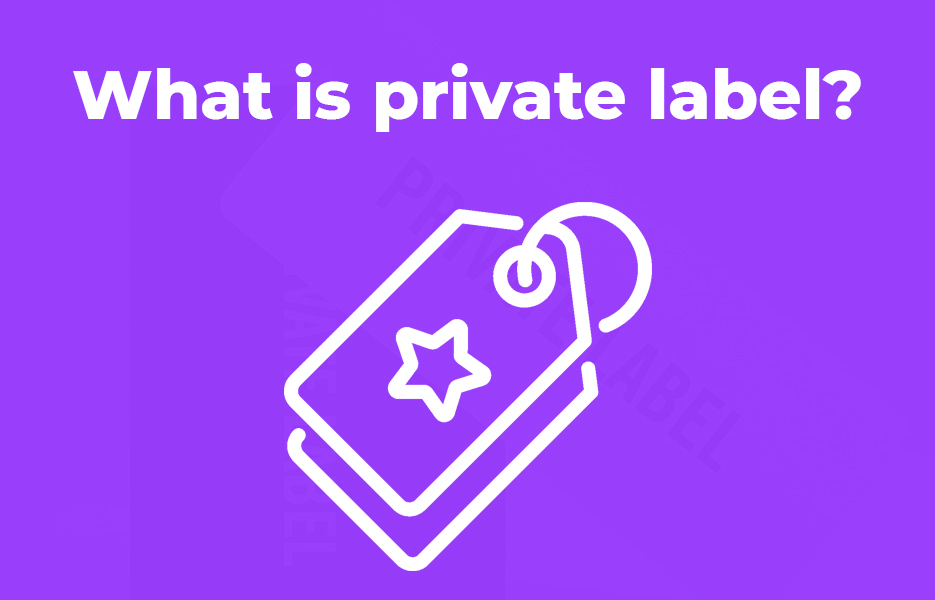
Private label products are sometimes also referred to as ‘store brand’ products, and are typically less expensive than household name branded goods, but can usually bring retailers a better margin than the generic brand name goods they carry.
Investopedia states that private label refers to:
“goods that are manufactured for, and sold under the name of a specific retailer, competing with brand-name products”
The retailer gets to specify everything about their product – how it is packaged, what is in the package and so on. The manufacturer creates what has been requested and delivers the products to the retailer’s premises, rather than being a direct to consumer fulfilment service the way DropShipping is.
How does private label work?
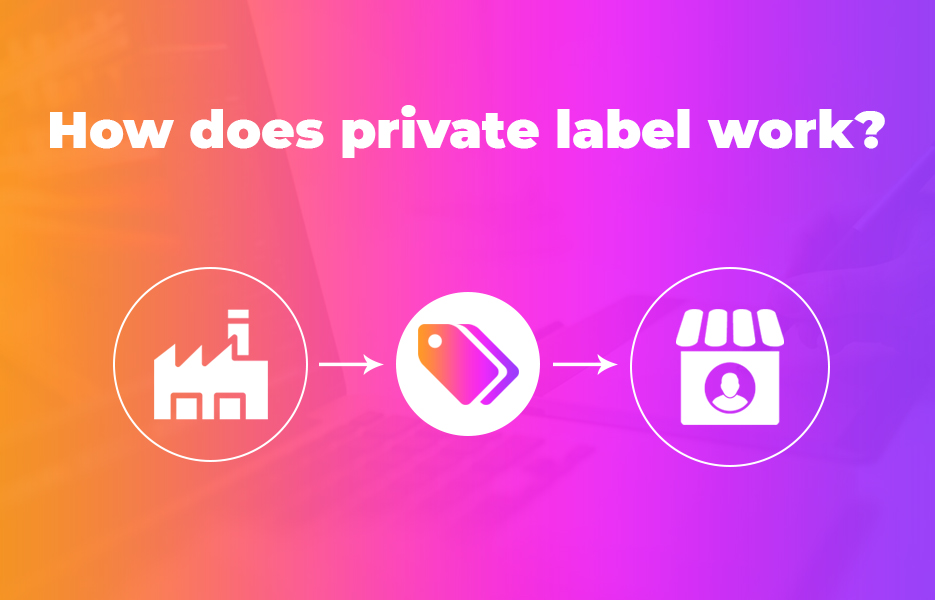
Private label manufacturers make deals with sellers and brands to sell their products under the seller’s private label name, but with no attribution to the manufacturer.
Private label goods are usually sold as a lower-cost alternative to household name brands, although some private label brands are being marketed as premium brands to compete with other high end products. This approach allows the seller an opportunity to make a much bigger profit, and the seller can order the right amount of product in line with the demand of their customers.
Categories to find private label categories
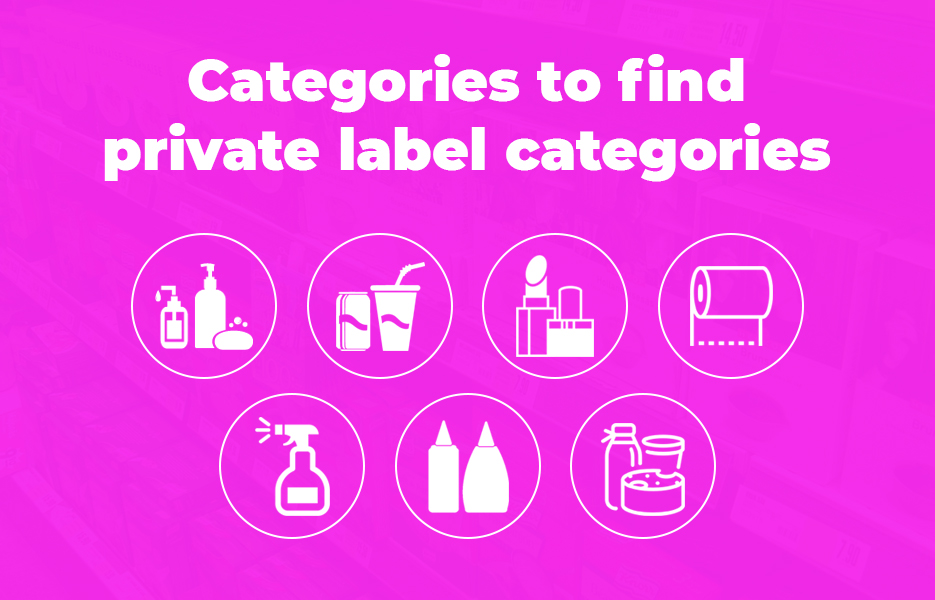
You can find products available to buy from almost every single product category, although not all of these categories will be suitable for eCommerce retailers.
- Personal care
- Household cleaners
- Beverages
- Condiments and salad dressings
- Cosmetics
- Dairy items
- Paper products
- Frozen foods
Private label products are becoming ever more popular with consumers – and there is plenty of evidence to suggest that lines of private label goods are on the up.
Advantages of working with private label items
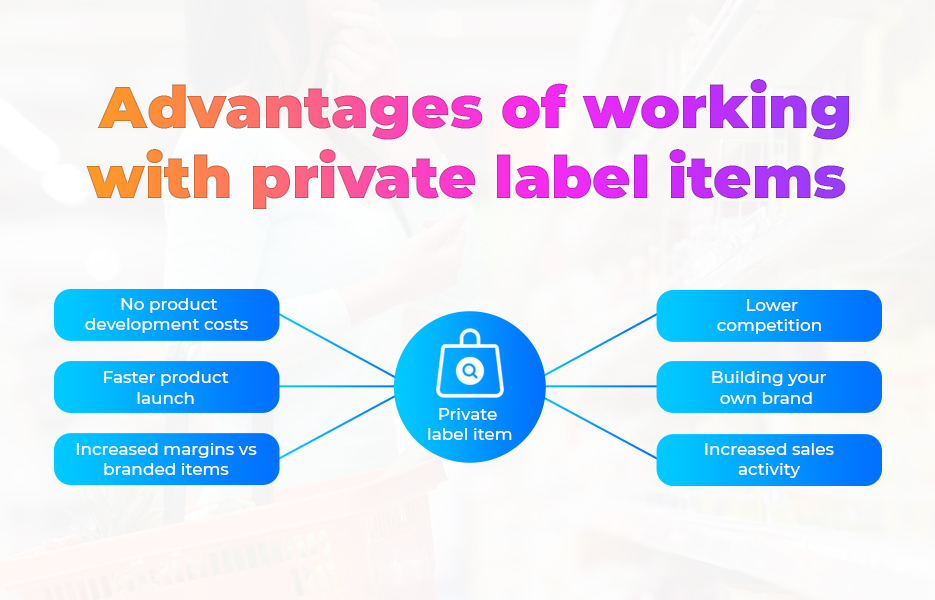
If you’re trying to decide whether to extend your offering by working with private label items, you’ll want to know the reasons for and against, and what the alternatives to working with private label goods are. We’ll get to the alternatives in a moment, but here are some of the main reasons to work with private label items.
No product development costs
If you already know the sort of product you want to sell, and that type of product is already on the market, then you are unlikely to want to create something completely from scratch – unless you want to make it completely differently. For example, a business that specialises in cleaning products that wants to create their own range of cleaning products isn’t going to want to start developing a detergent from scratch, unless they have their own natural formula. If they’re just looking to offer a detergent with their branding on it – then that’s where private label is perfect. The manufacturer has already created the products, and has ensured complete compliance with the legislation in which they operate. All the supplier has to do is to establish that it is suitable for their requirements, and the deal can be done.
Faster product launch
When creating a new product from scratch, it isn’t a quick process. Even the simplest of products can take between six to twelve months to get on the market – whereas for private label products, it is much faster. Generally private label products can be on the shelf in just a few months.
Increased margins vs branded items
You won’t be paying a premium for private label products in the same way that you do for branded products, which means that your margins will be bigger. Of course, there will be an additional spend on the product, but you’ll only pay for the product and the packaging – you’re not paying for the brand name that needs to pay for the expensive marketing campaign.
Lower competition
For some products, it may be possible for your supplier to make the same product for you without their label. That means you’ll be able to charge full price for your product, even when the competition puts theirs on sale. Depending on your supplier, you might be able to alter the product to resolve any customer complaints too, such as adding an extra screw, or updating instructions.
Building your own brand
If you’re looking into private label products, you’re most likely to be looking to grow your own brand. Let’s say you’re a seller of shoes, selling from an Avasam supplier. You might decide to get private label shoe cleaning supplies – polish and cloths, and apply your own labels, or have your supplier add the labels for you. Many private label manufacturers have design teams that can create exactly what you’re looking for.
Increased sales activity
You’ll be able to contest the prices of branded items, since you’ll have more room in your profit margin. In addition to that, you can also consider selling your private label products to other retailers at wholesale prices. If you choose to do this, you’ll be able to charge a premium for the right to be able to sell your brand. This allows you to create additional income and increase the exposure of your brand – which of course will mean that your brand will be able to be more successful overall.
Increased customer loyalty
Where customers love your products because they’re great quality and at a price they’re happy to pay, they’ll need to come back to you to find them. Since customer loyalty can be really hard to build – especially where alternatives with better prices are everywhere – using private label goods in your business can be a way to encourage repeat custom.
Challenges of working with private label items

There are always challenges – especially when it comes to eCommerce! But knowing what the issues are likely to be can help you combat the problems before you even get started.
Dead stock
When you purchase private label inventory rather than DropShipping from your suppliers, you have to sell any stock you’ve got. You might be able to return branded merchandise to your supplier, but with your private label stock, you won’t be able to. Stock that isn’t selling is a problem, because that represents your money that is tied up – and you may find you need to discount the prices on your private label items if they’re not selling quickly enough, or at all.
Minimum order quantities
Most private label manufacturers will work with a minimum order quantity before they will customise products. That means your upfront investment will need to be much, much larger, and of course, you’ll need to have enough space to store your stock. Minimum order quantities are often a lot bigger than you might be happy to invest in, but you may be able to work with your supplier to find a compromise that you’re both comfortable with. You might be able to meet the minimum order requirements by ordering different product variations – colours or sizes, for example – which may give you some leeway, as well as some additional choice for your customers.
Customer perception
Some customers simply won’t be swayed from household name items. They assume that private label products are inferior quality, or they’re just not prepared to risk choosing an alternative to what they like. Before you even find your private label manufacturer, if it well worth taking the time to do in-depth research, so that you know if your investment is going to be worth it. While you’re doing that research, be sure to find out the sort of brands that your customers want, so you’ll be able to create the sort of brand and experience that they want.
Choosing a private label manufacturer
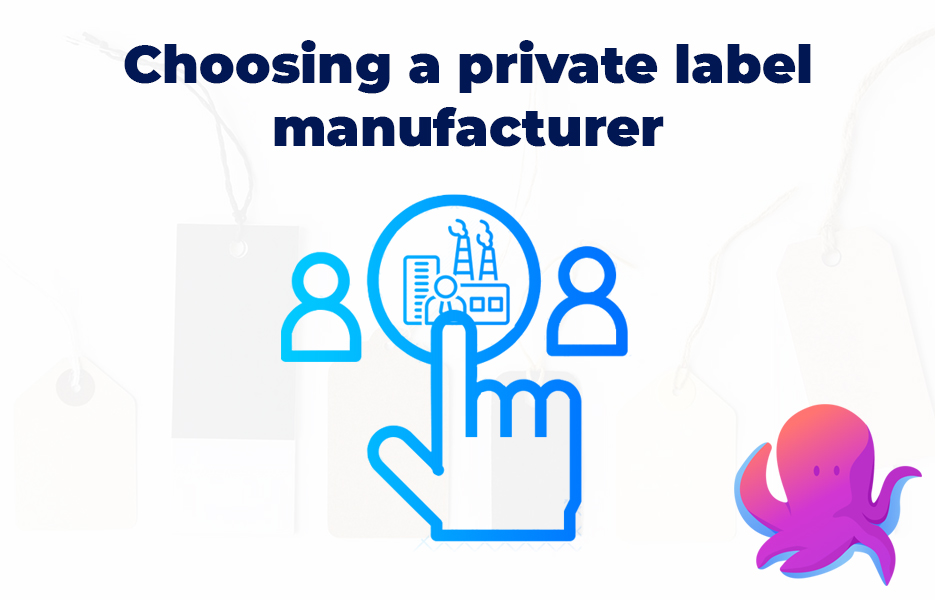
Much like when choosing a clothing manufacturer, you’ll have a lot of variables to consider. Each business is unique, and has unique requirements for the products in their private label range. As we’ve just mentioned, your customer research is going to be essential here, because it will be your customers that determine whether your private label efforts are going to be successful or not.
If you’re starting your search in the UK, the Department for International Trade has a huge list of manufacturers, but there are plenty of other databases and resources to be found online. When you’re choosing who to work with, be sure to check reviews for the business, and ask the manufacturer who else they have worked with. They should be able to give you names of companies that you can contact and ask about their experience with that manufacturer.
What’s the difference between private label and white label?
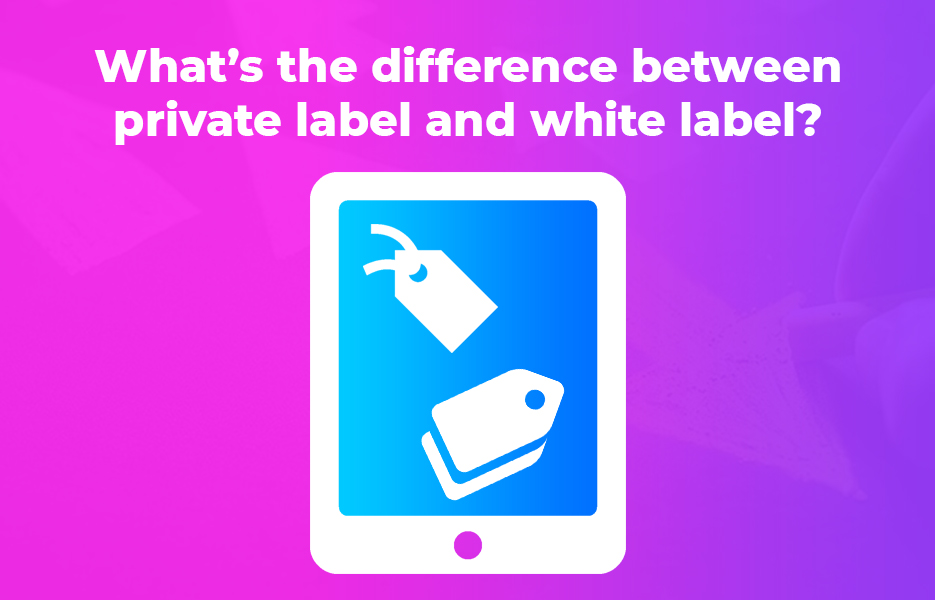
There are small differences between white label and private label, but they are important to be aware of.
Private label is a brand that is sold exclusively in one retailer – for example, George, the clothing range for Asda, or the Stockwell & Co food line at Tesco.
White label is a term to describe a generic product that can be sold by multiple retailers. An example would be a generic painkiller, which could be packaged differently for any retailer.
When you’re looking to increase the options for your retail business, or you want to start to create your own brand that will ultimately grow your business to something unique, private label can be a good way forward. However, as with everything in business, it isn’t the right move for everyone – and so you’ll need to carry out careful assessments of what you want to achieve, what your private label manufacturers are able to offer you, and most importantly, what your customers want.
- Private label is a way of creating a range of products using a seller’s branding
- Manufacturers of private label goods are available in most categories
- There are a lot of advantages to working with private label items, including increased margins
- The right private label manufacturer to partner with can make or break your business – choose wisely
- Be sure you’re choosing the right option between private label and white label
Whether you’re creating a business built on traditional retail, DropShipping, private label products, or a mix of methods, we wish you the very best of luck! As always, you’re welcome to get in touch to discuss how the DropShipping model can benefit your business, either as a seller or a supplier.

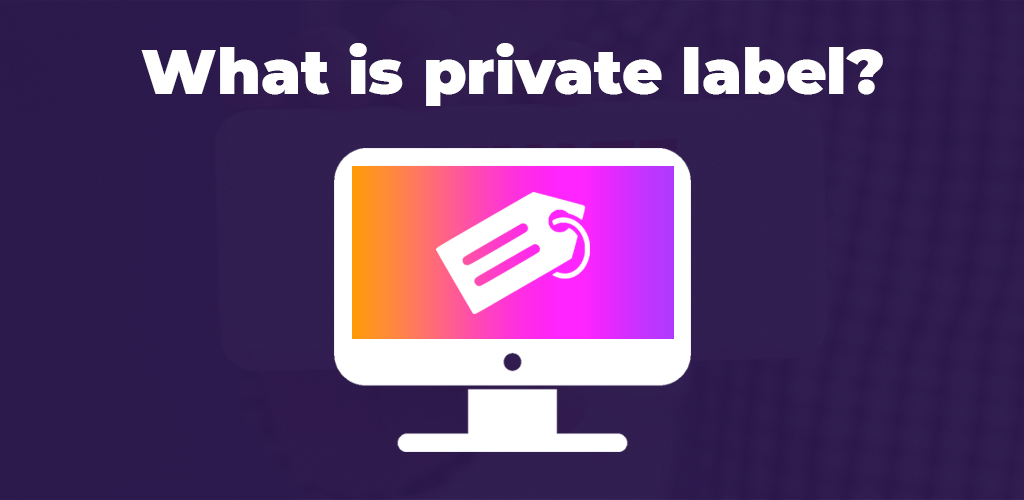

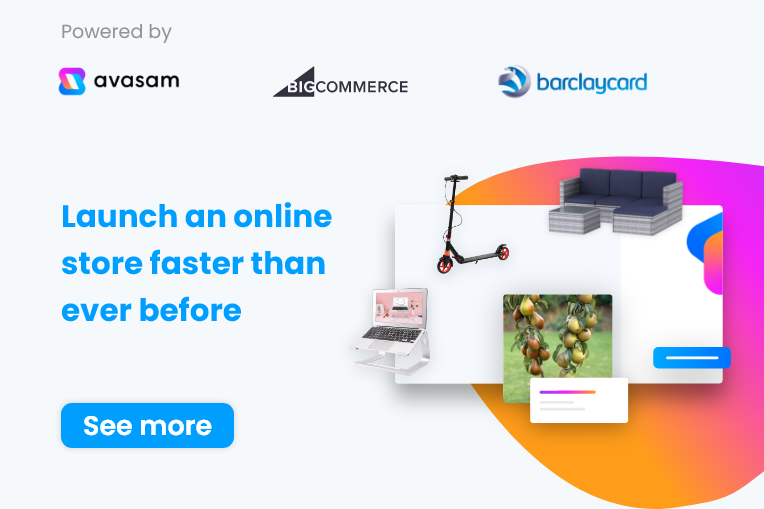

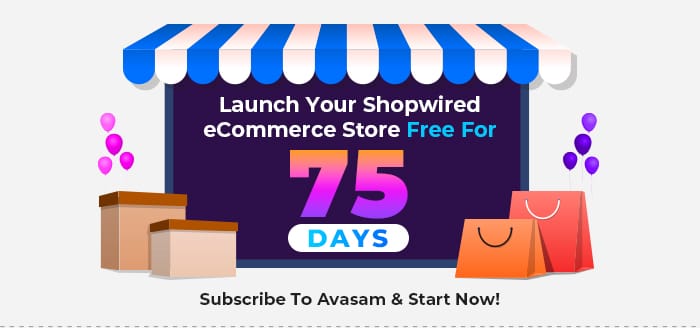


DropShip products from verified suppliers to diversify your inventory and scale your eCommerce business